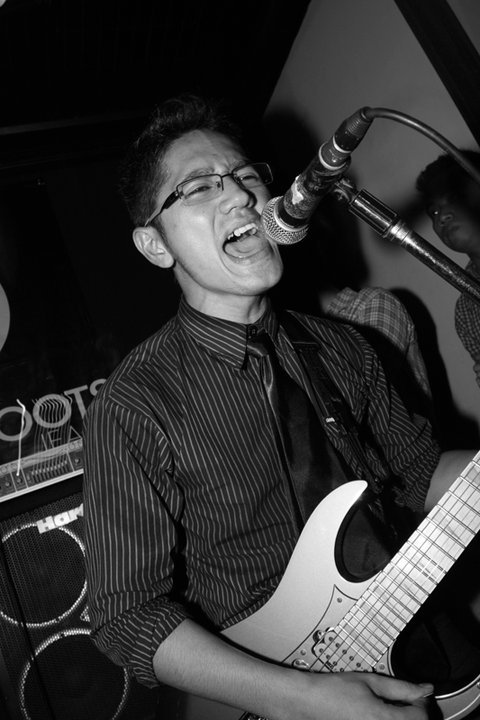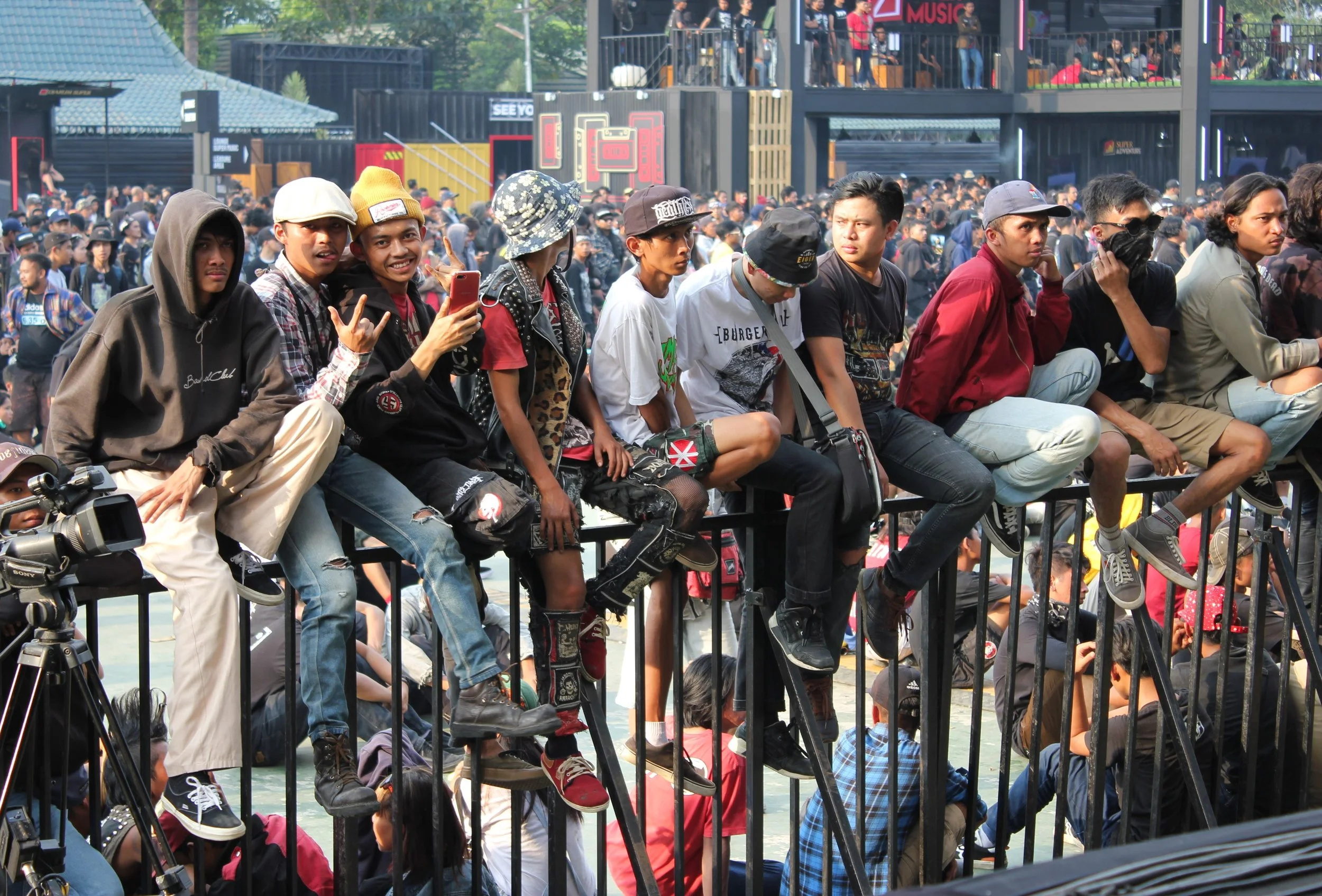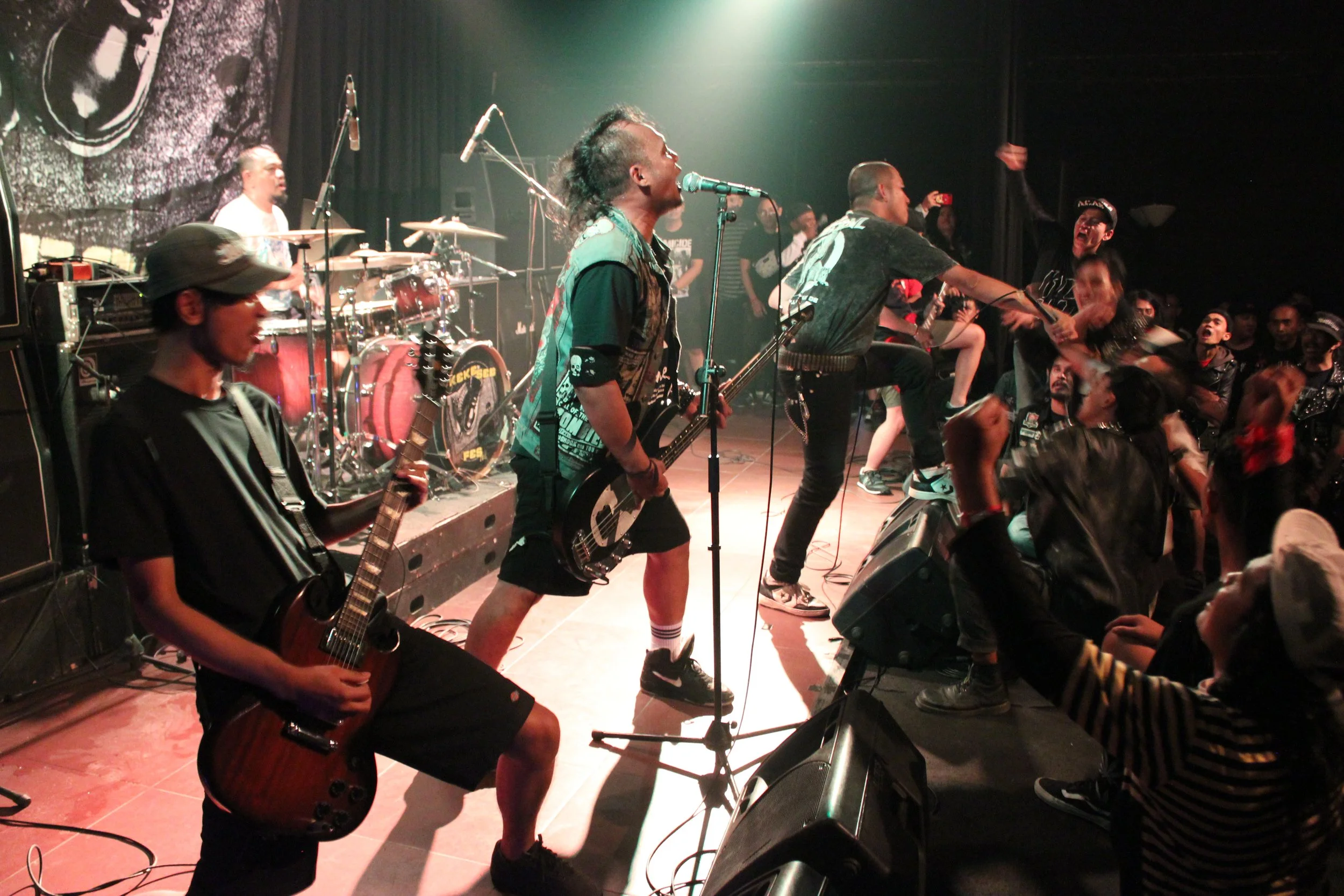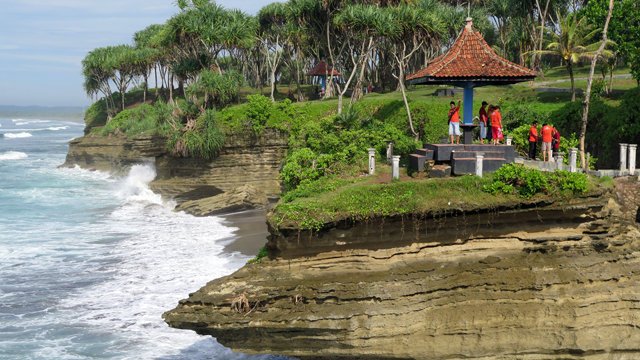Hikmawan Saefullah
(aka Indra)
Tell us about yourself!
Hi, I’m Hikmawan Saefullah a.k.a. Indra. I just started a new role as a Lecturer in Digital Humanities with an Indonesian Focus at the Department of Literatures, Languages, Linguistics and Cultures, School of Humanities, Arts and Social Sciences, University of New England. While I mainly teach in the Indonesian program, I also teach some Political and International Studies and Sociology units. My background as an underground rock musician (punk, ska, post-hardcore/Emo) and activism in the 1990s shaped my research interest in the area of youth subcultures, Islamic politics, Indonesian Islam (and their connection with the Middle East), politics and social movement in Indonesia.
Where does your interest in Indonesia stem from?
My grandparents from both sides took part in the national struggle for independence against Dutch colonialism and Japanese occupation in Garut, West Java. Their involvement in the revolutionary struggle and affiliation with Indonesia’s early nationalist organisation Sarekat Islam (SI) explains their fondness for Sukarno’s leadership as they told me and my siblings when we were kids. My father studied Demography at the Australian National University under a scholarship from the Colombo Plan in the 1970s. When he was living and studying in Canberra, he was supported by the late Aki (Sundanese for grandfather) Achdiat Karta Mihardja (and his wife Nini Tati), a former Indonesian journalist and well-known novelist who wrote Atheis in the 1940s. Since Aki treated my father like his own son, he called me and my siblings incu (Sundanese for grandchildren), although we don’t have a direct family connection despite our Garut/Sundanese origins. Aki was an important figure who co-developed Indonesian studies at ANU in the 1960s. It was Aki Achdiat who first told me about the ‘hidden’ history of Indonesia in a way that was far more interesting and eloquent than any other historian I’ve ever known.
What is the nature of your engagement with Indonesia – are you an academic, a professional, an alumni…
I’ve been an academic for over 17 years but only started to focus on the field of Indonesian studies when I did my master’s at ANU and PhD at Murdoch University. My engagement with Indonesia has been more than just in academia. Before, I was an ‘unofficial diplomat’ who was sent by the Indonesian Ministry of Foreign Affairs to carry out various public diplomacy missions including traditional cultural performances and friendly soccer matches in European countries in 2001. In 2014, I was also sent to South Africa to give public lectures in local universities. Apart from that, I was involved in the Indonesian underground music scene as a musician and toured across the country since the 1990s and made lots of friends from each town and city I visited.
Have you ever been to an Indonesia Council Open Conference and if so, what is your fondest memory?
I haven’t unfortunately. Kasihan banget ya? One day, hopefully.
How do you think organisations like Indonesia Council can improve Australia-Indonesia relations?
Organisations that foster people-to-people relations like Indonesia Council are very important to foster a stronger Australia-Indonesia relationship. We need a space like the one provided by the Indonesia council where people from both countries can exchange ideas with and inform one another about what’s happening in Indonesia and Australia, and what can they do to overcome the challenges of maintaining a good relationship between the two countries.
What are some of the challenges and opportunities in the Indonesia-Australia relationship?
The current challenges for the Indonesia-Australia relationship lie in the effort to address the low level of trust and understanding between the two countries. What bothers me over the years is that Australia and Indonesia are both close neighbours and bound in diplomatic ties for decades but there has been a lack of cultural exchanges between the two. In pop culture, for instance, young Indonesians preferred American music and films (we only knew Silverchair and Savage Garden through American media channels like MTV). The newer generation is more into Korean pop culture. On the contrary, Australia tends to import British and American pop culture more than the ones Indonesians produced. Geographically, Indonesia and Australia are very close and both tend to maintain their cultural connection with the ones that are far away like US, UK, and Korea.
Tell us about your favourite Indonesian food experience
Living in Australia means there’s less chance for me to enjoy authentic Indonesian food. I may be able to cook satay or Sundanese food, but it is far from authentic. I’m bad at cooking. There was a popular takeaway resto that used to sell delicious Indonesian food especially Mie Ayam in Kippax, Canberra. It’s sad to know that it has now closed.
(For non-native Indonesian speakers) Do you speak Indonesian and where did you start learning it?
N/A
What’s your favourite Indonesian food and why?
There’s a lot of Indonesian food that I like, mostly spicy. I love Sundanese Food, Mie Bakso with tetelan, Se’i Sapi (from Nusa Tenggara Timur), street foods like Cimol, Tahu Gejrot, Rujak, Mie Ayam, Cireng, and Pempek Palembang. They have distinctive flavours and are temporary solutions to my stress. Beneran.
What’s your favourite Indonesian music/song/writer?
The old song that was forbidden by the New Order era: ‘Genjer-genjer’, both Nining Surjani’s and Bing Slamet’s versions. The cover by the Cambodian-American band Dengue Fever is also very nice. ‘Tanda-tandanya’ by Mus Mujiono, ‘Masih Ada’ by Dian PP & Deddy Dukun, ‘Bayangan’ by U’Camp, and as for the loudest spectrum, ‘Atur Aku’ and ‘Sistem’ by Indonesian hardcore punk band Puppen, ‘Puritan’ by Indonesian Hip Hop band Homicide. The last three songs were the soundtrack for Reformasi and early disillusionment with the post-Reformasi political order.
What’s your favourite Indonesian idiom?
The idiom is not originally in Indonesian, but Sundanese, my ethnic and language origins: “Cikaracak ninggang batu, lila-lila jadi legok” (in Indonesian: [Jika] Air terus menetes mengenai batu, lama kelamaan [batu tersebut] jadi cekung). It means you should not be desperate or give up when struggling to accomplish or achieve something. A drop of water may not change the shape of a stone, but thousands of drops may create a difference. An effort to change or achieve something may require a continual and diligent process. So, never give up and keep on trying.
[Last month’s PAY IT FORWARD question]: What is your favourite holiday spot in Indonesia?
Batukaras beach! It’s about an hour’s drive from Pangandaran Beach, on the southern coast of West Java. It was once known as a ‘hidden gem’ or ‘secret beach’ by young people from Bandung who would go there regularly for a short holiday and surfing. It’s less commercial than Pangandaran beach. Java Cove is the best accommodation if you plan to go there.
PAY IT FORWARD: Finally, it’s YOUR turn to ask a question… Please suggest a question we can ask our next member!
What is your weirdest and/or funniest experience when you travelled to Indonesia?




